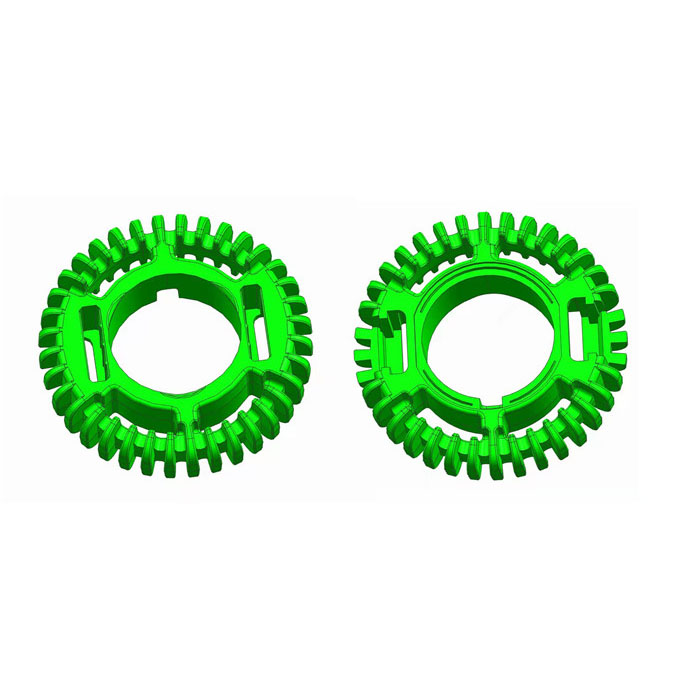In today’s world, manufacturers are always looking for ways to produce their products more efficiently and at a lower cost. One way they can do this is by using small plastic parts instead of metal parts.
Polymers now allow injection molders to create strong, flexible, and durable components that were once made of metal. This not only reduces costs, but also makes production more efficient. Let’s take a closer look at how this works. Injection Moulding Suppliers

Injection molding is a manufacturing process in which polymers are melted and injected into a mold to create various shaped parts. This process can be used to create small plastic parts with intricate designs. Injection molding is faster and more precise than other manufacturing methods, such as machining or casting.
There are many benefits to using small plastic parts instead of metal parts.
Plastic is made of carbon and hydrogen, both of which are lighter than metal. This means that products made with plastic parts will be lighter overall, making them easier to transport and less expensive to ship. The light nature of plastics can benefit many applications, such as aerospace applications where weight is a concern.
Small plastic parts are also gaining popularity because they are highly corrosion-resistant. They will not rust or corrode like metal parts can, even when exposed to harsh chemicals or salt water. This makes them ideal for use in environments where corrosion would be a concern, such as in food processing or medical applications.
In addition to being corrosion-resistant, small plastic parts are also non-conductive. This means that they will not conduct electricity like metal parts can. This property can benefit many applications where electrical safety is a concern, such as in electronic devices or electrical enclosures.
Small plastic parts are often stronger than their metal counterparts. They can be designed with specific properties such as impact resistance, which metal parts cannot. This makes them ideal for use in applications where strength is a concern, such as in automotive or construction applications.
Small plastic parts are also more flexible than metal parts. They can be designed to fit into tighter spaces and to conform to irregular surfaces. This makes it ideal for use in products that need to be flexible, such as hoses or tubing.
One of the most appealing benefits of small plastic parts is that they are typically less expensive than metal parts. They can be produced more quickly and with less material, and the cost of raw materials is often lower for plastic than metal.
Plastic, being a good insulator, does not conduct electricity. This makes it the preferred choice over metal for many electrical applications where safety is a concern.
Plastic is also one of the most easily recycled materials. It can be melted down and reused to create new products, which helps to reduce waste and conserve resources.
Plastic parts can be molded into any shape and color. Therefore, designers have a lot of freedom to create products that are pleasing to the eye. In addition, plastic can be textured or finished to create various looks.
Small plastic parts offer many benefits over their metal counterparts. They are lighter, stronger, more flexible, and less expensive. In addition, they are easier to recycle and have a wide range of aesthetic possibilities. If you are considering using them in your next project, keep these benefits in mind.
Proto Plastics is a full-service plastic injection molding company that can help you with everything from design to manufacturing to assembly. We offer consistent quality, short lead times, and competitive prices to help you get the most out of your project.
Contact us today to learn more about our capabilities or to request a quote.

Plastic Molding Development The post Benefits of Small Plastic Parts appeared first on Proto Plastics.